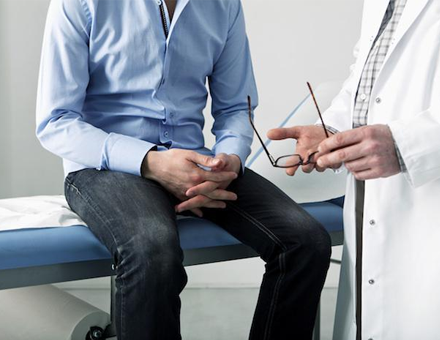Maybe you always take safer sex precautions, but your condom broke. Or perhaps you’ve had sex with more risks. As a result, you’re worried about potential sexually transmitted diseases (STDs).
Getting tested for an STD can seem scary or embarrassing, but it’s an important part of your health care as a sexually active person. Once you have a diagnosis, you can move on to getting treatment and managing your condition — and you can avoid infecting future sexual partners.
With the discreet and professional care team at Monrovia Internal Medicine & Primary Care, under the leadership of Ulin Sargeant, MD, MPH, you can trust that your sexual health is in good hands. We offer comprehensive STD screening and treatment services from our Duarte, California, office.
Here are five examples of STDs and how they’re treated.
1. Bacterial STDs
STDs like chlamydia, gonorrhea, and syphilis are caused by infectious bacteria that transmit during sexual contact. If you test positive for any of these conditions, Dr. Sargeant can prescribe antibiotic medication that should clear up the issue once you’ve finished the course of treatment.
2. Parasitic STDs
Some parasites can also be transmitted through sexual contact. Trichomonas vaginalis is an example of a sexually transmitted parasite, causing the common STD trichomoniasis, or “trich.” You have several treatment options for a parasitic STD, including antibiotics, antiparasitic medications, and even medicated shampoos.
3. Hepatitis B
You can prevent hepatitis B — a liver disease — with a vaccine. If you’re concerned about exposure to hepatitis B through sexual contact with someone infected with this virus, a blood test and liver examination can confirm infection or immunity. Blood tests also let us know if your hepatitis B is acute or chronic.
We can treat you with an injection of antibodies within 12 hours of your exposure, potentially protecting you from contracting hepatitis B. If you develop an acute hepatitis B infection, we recommend rest and good nutrition while your body recovers. Chronic hepatitis B requires ongoing medication to reduce your risk of transmitting this viral STD.
4. HPV and genital herpes
Both human papillomavirus (HPV) and genital herpes are viruses that can be transmitted sexually. These two STDs have many similarities, but they’re medically distinct. The most common symptom of both is genital lesions, but both conditions can be present without any symptoms or even lie dormant in your body for years.
Once we’ve diagnosed your HPV, you may need treatment for symptoms as well as screenings for the associated risk of cervical cancer. There isn’t a cure for herpes, but Dr. Sargeant can recommend antiviral treatments to minimize your symptoms and your risk of infecting future sexual partners.
5. HIV
Another viral STD, human immunodeficiency virus (HIV) attacks your immune system, potentially leading to acquired immunodeficiency syndrome (AIDS). There are several options for treating potential HIV exposure, and we may be able to prevent the development of full-blown AIDS if you receive prompt treatment.
If you suspect you may have been exposed to HIV, you should start antiretroviral therapy (ART) as soon as possible. With a daily medication regimen, you may be able to avoid contracting the virus. If you do have HIV, ART can also lower your viral load to an undetectable level, meaning that you won’t be able to transmit HIV to partners through sexual contact.
If you think you could have an STD, get tested as soon as possible. Once you have the information you need, Dr. Sargeant can recommend the best course of treatment for your diagnosis and health care needs.
To schedule an appointment at Monrovia Internal Medicine & Primary Care — either in person or via telemedicine — give us a call at 877-254-4496, or use our online booking tool.


